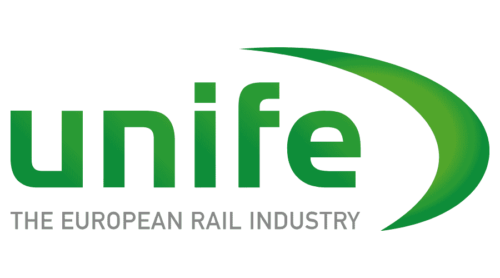EUROPEAN RAIL SECTOR WELCOMES PARLIAMENT’S PROPOSED GOALS FOR THE FUTURE OF TRANSPORT AND CALLS FOR IMMEDIATE ACTION
In particular, CER and UNIFE welcome the ambition of the European Parliament to set tangible targets for reducing emissions of CO2 from transport by 2020. In doing so, it is crucial to follow the original logic of the Commission White Paper to set one overarching emissions reduction target for all modes.
The Community of European Railway and Infrastructure Companies (CER), and the European Rail Industry (UNIFE) welcome the own initiative report of Mr. Grosch on a Roadmap to a Single European Transport Area adopted today by the European Parliament. In particular, CER and UNIFE welcome the ambition of the European Parliament to set tangible targets for reducing emissions of CO2 from transport by 2020. In doing so, it is crucial to follow the original logic of the Commission White Paper to set one overarching emissions reduction target for all modes.
CER and UNIFE fully support reaching the specific targets set by the Commission: notably, GHG emissions from transport should be reduced by at least 60% by 2050 compared to their 1990 levels; 30% of road freight over 300km should shift to rail or waterways by 2030, and 50% by 2050; the length of the high-speed network should be tripled by 2030, and by 2050 the majority of intermediate-distance overland passenger travel should go by rail.
In this respect, the rail sector welcomes the European Parliament’s proposal to set an intermediate target for an overall reduction of GHG emissions from transport by 20% in relation to 1990 levels by 2020.
The European rail sector also applauds Parliament’s support for moving towards the full internalisation of external costs. This is a policy commitment that CER and UNIFE have long been advocating as it is vital for the creation of both a sustainable transport system and a level playing field for competition between modes.
The rail associations welcome MEPs’ commitment to evaluate the situation of the single wagonload market and to consider allowing member states to support this activity in light of its economic, social and environmental benefits. This could help increase capacities and volumes of this sector, making it more attractive for both users and operators.
CER and UNIFE regret the adoption of an amendment on megatrucks, which was heavily debated ahead of the vote. A possible future authorisation of the use of megatrucks would be highly contradictory with the broader aims of the White Paper. It would result in reverse modal shift of freight from rail to road, increased CO2 emissions and costly additional investments to adapt road infrastructure. The associations therefore welcome that the text specifies that any changes to and standardisation of loading units must demonstrate benefits in the form of fuel savings, lower emissions and improved road safety.
The ongoing review of the TEN-T policy will be a first step towards bringing transport infrastructure in line with the objectives of the White Paper. Like the European Parliament, the rail associations call upon Member States to implement the core network and to ensure adequate and reliable financing of TEN-T projects.
CER Deputy Executive Director Libor Lochman highlighted: “In order to reach the White Paper targets, we will need to set the right price incentives to change users’ behaviour and induce modal shift. Creating a legislative framework that ensures fair competition between modes on a level playing field through full internalisation of external costs and the elimination of counterproductive tax exemptions will be key.”
Philippe Citroën, UNIFE Director-General, said: “After years of constructive discussions between transport stakeholders and the European Institutions, it is now time to act to make European transport more sustainable. The European Rail Industry is keen on implementing the set of measures proposed by the Commission in its Transport White Paper. For this to happen we are fully committed to deliver energy efficient and sustainable systems to promote rail growth”.
CER
Eva Böckle
Press and Communications Manager
phone +32 2 213 08 90
mobile +32 473 32 20 94
e-mail eva.boeckle@cer.be
The Community of European Railway and Infrastructure Companies (CER) brings together more than 70 European railway undertakings and infrastructure companies. CER represents the interests of its members towards the European institutions as well as other policy makers and transport actors. CER’s main focus is promoting the strengthening of rail as essential to the creation of a sustainable transport system which is efficient, effective and environmentally sound. For more information, see www.cer.be
UNIFE
John Harcus
Head of Communications
phone +32 2 643 70 80
mobile +32 485 753 665
e-mail john.harcus@unife.org
UNIFE represents the European Rail Industry in Brussels since 1992. The Association gathers more than 70 of Europe’s leading large and medium-sized rail supply companies active in the design, manufacture, maintenance and refurbishment of rail transport systems, subsystems and related equipment. A further one thousand suppliers of railway equipment partake in UNIFE activities through 13 national rail industry associations. UNIFE members have an 80% market share in Europe and supply more than 50% of the worldwide production of rail equipment and services. www.unife.org
